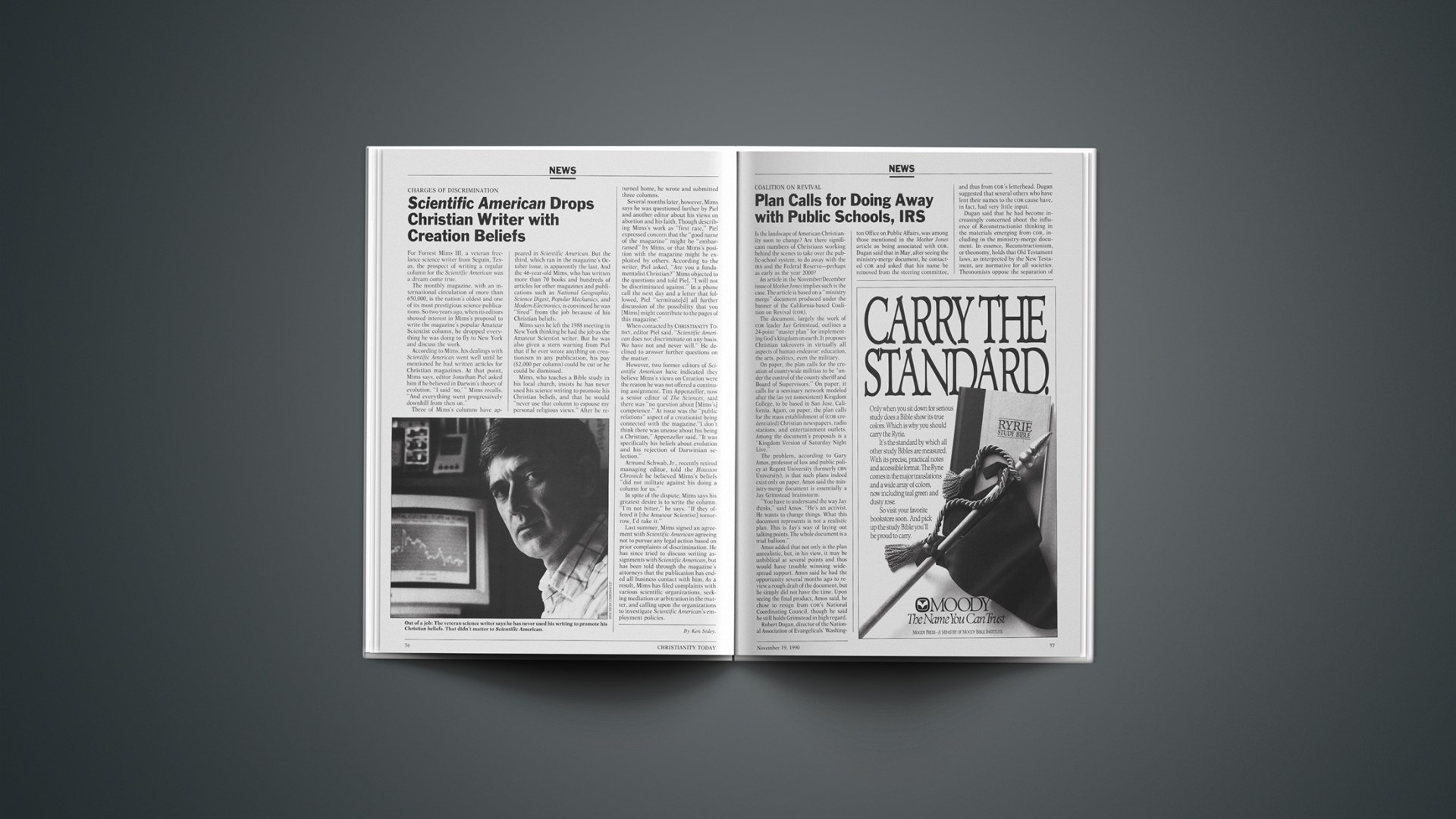Is the landscape of American Christianity soon to change? Are there significant numbers of Christians working behind the scenes to take over the public-school system, to do away with the IRS and the Federal Reserve—perhaps as early as the year 2000?
An article in the November/December issue of Mother Jones implies such is the case. The article is based on a “ministry merge” document produced under the banner of the California-based Coalition on Revival (COR).
The document, largely the work of COR leader Jay Grimstead, outlines a 24-point “master plan” for implementing God’s kingdom on earth. It proposes Christian takeovers in virtually all aspects of human endeavor: education, the arts, politics, even the military.
On paper, the plan calls for the creation of countywide militias to be “under the control of the county sheriff and Board of Supervisors.” On paper, it calls for a seminary network modeled after the (as yet nonexistent) Kingdom College, to be based in San Jose, California. Again, on paper, the plan calls for the mass establishment of (COR credentialed) Christian newspapers, radio stations, and entertainment outlets. Among the document’s proposals is a “Kingdom Version of Saturday Night Live.”
The problem, according to Gary Amos, professor of law and public policy at Regent University (formerly CBN University), is that such plans indeed exist only on paper. Amos said the ministry-merge document is essentially a Jay Grimstead brainstorm.
“You have to understand the way Jay thinks,” said Amos. “He’s an activist. He wants to change things. What this document represents is not a realistic plan. This is Jay’s way of laying out talking points. The whole document is a trial balloon.”
Amos added that not only is the plan unrealistic, but, in his view, it may be unbiblical at several points and thus would have trouble winning widespread support. Amos said he had the opportunity several months ago to review a rough draft of the document, but he simply did not have the time. Upon seeing the final product, Amos said, he chose to resign from COR’s National Coordinating Council, though he said he still holds Grimstead in high regard.
Robert Dugan, director of the National Association of Evangelicals’ Washington Office on Public Affairs, was among those mentioned in the Mother Jones article as being associated with COR. Dugan said that in May, after seeing the ministry-merge document, he contacted COR and asked that his name be removed from the steering committee, and thus from COR’s letterhead. Dugan suggested that several others who have lent their names to the COR cause have, in fact, had very little input.
Dugan said that he had become increasingly concerned about the influence of Reconstructionist thinking in the materials emerging from COR, including in the ministry-merge document. In essence, Reconstructionism, or theonomy, holds that Old Testament laws, as interpreted by the New Testament, are normative for all societies. Theonomists oppose the separation of church and state and advocate theocracy.
Amos said that while he was involved in COR he tried to present alternatives to Reconstructionism. He observed that Reconstructionist influence in the Christian scholarly community is on the wane, noting that some Reconstructionists have in recent years abandoned some of theonomy’s most basic planks.
Grimstead said Mother Jones’s “sinister” portrayal of COR and the controversial document was “misleading.” But he offered no apologies for the document itself. He said COR’s purpose is to work toward a “unified agenda for the body of Christ” and that the document fairly represents much of the thinking of such respected conservative activists as D. James Kennedy and Pat Robertson. “A total world view must be set against another world view,” said Grimstead. “Patching up things with Band-Aids and aspirin won’t work. We need new banks, new approaches to education, fundamental change.”










